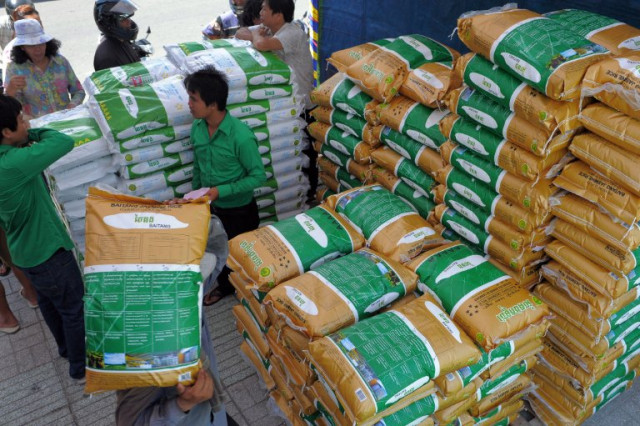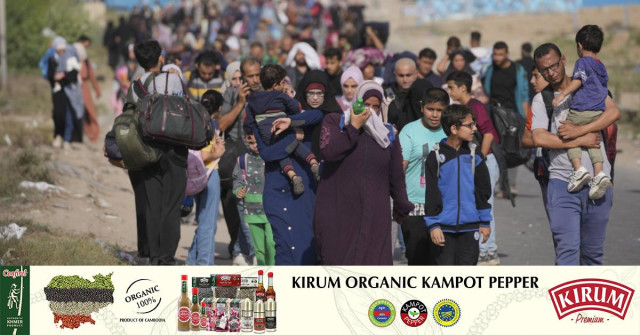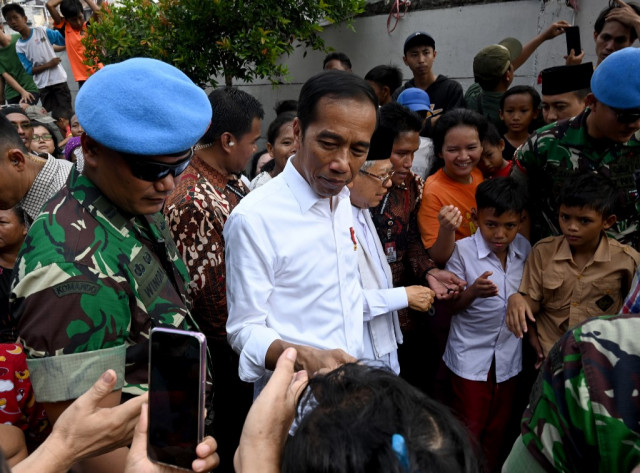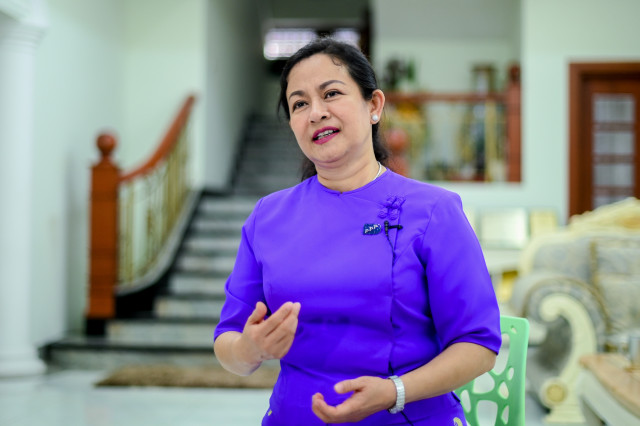Cambodia Defeats EU Rice Tariffs

- By Teng Yalirozy
- December 1, 2022 4:10 PM
PHNON PENH – Cambodia has won a three-year legal battle over a European Commission decision to revoke tariffs on indica rice from Cambodia to the European Union.
The Cambodia Rice Federation (CRF) announced the victory on Nov. 30, saying, “EU Commission imposing tariffs on Cambodia’s indica rice in EU market was illegal and unsubstantiated.”
The General Court of the Court of Justice of the European Union made the ruling on Nov. 9, annulling “safeguard measures with regard to imports of indica rice originating in Cambodia and Myanmar.”
In Feb. 2018, Italy sought “trade safeguards” on rice imports. Other EU states that grow rice, including Spain, France, Portugal, Greece, Hungary, Romania and Bulgaria, supported the request.
A formal investigation showed that indica rice imports from Cambodia and Myanmar increased significantly into the EU, harming European producers' bottom lines. The low-cost imports caused EU rice producers’ local market share to fall from 61 to 29 percent.
On Jan. 2019, the EU officially imposed the “normal customs duty” on Cambodia’s indica rice for three years. This amounted to €175 per tonne (roughly $200) in the first year, dropping to €150 and €125 per tonne in the second and third years. The tariff policy expired on Jan. 20, 2022.
On April 10, 2019, the CRF filed a lawsuit with the EU Court of Justice. The complaint took three years to reach the verdict.
The CRF said it considered the court’s decision a reflection of the legitimacy of the development of the Cambodian rice sector under the government's development policy.
Hong Vannak, an economic analyst at the Royal Academy of Cambodia, said three years of duty imposition and to reach the verdict was a long period which had affected the export of Cambodian rice.
Over the past three years, Cambodia paid nearly $50 million in rice export tariffs to the EU, according to CRF. Before 2019, Cambodian rice accounted for more than 50 percent of the European rice market; however, this fell to just over 20 percent in 2021.
He said the investigation should not have taken longer than a criminal case. The ball was in the EU’s court and progress depended on them.
However, Vannak congratulated Cambodia for eventually achieving justice. “At any time, we want a reasonable judgment that proves the truth and justice,” he told Cambodianess.
The win could add more value to Cambodia’s rice and help farmers.
Yet, Vannak warned that the excessive rice exports could hamper food security in Cambodia, causing the price to soar domestically. When suppliers only pay attention to exports, the domestic supply could be overlooked.
“That’s business,” he said. “If the demand is high and the supply is limited, the price will skyrocket.”
He also warned that international markets only take high-quality products, leaving Cambodia with low and limited quality for domestic use. This could lead to the import of low-quality products for local Cambodians.
In 2021, the EU was Cambodia's fifth-largest trade partner, accounting for nine percent of total trade. Cambodia is the EU's 61st largest trading partner, accounting for 0.1 percent of EU trade.
In 2021, Cambodia exported more than 600,000 tonnes of rice worth about $500 million, with only 140,000 tonnes going to the European market, a drop of 23.56 percent compared to the export in 2020, according to the Agriculture Ministry.
In the first five months of 2022, exports to 23 European countries rose to 88,167 tonnes, representing 31 percent of exports with an increase of 17.59 percent.
In November, the government announced that tax exemptions to ease costs for rice exporters and mills had been extended for another five years after providing for all types of tax exemptions since 2011.















